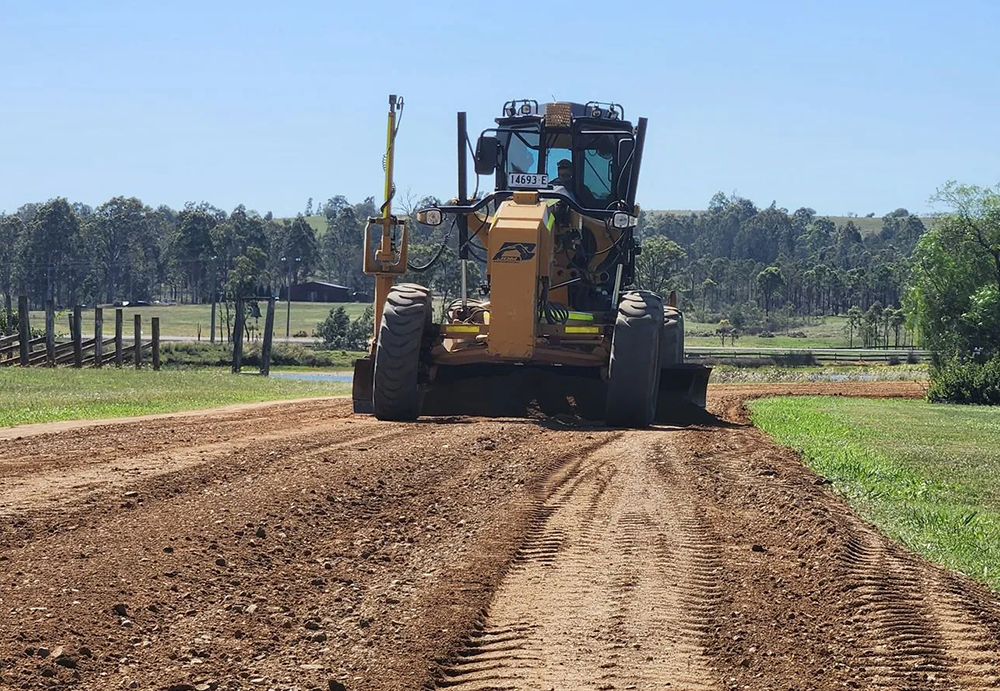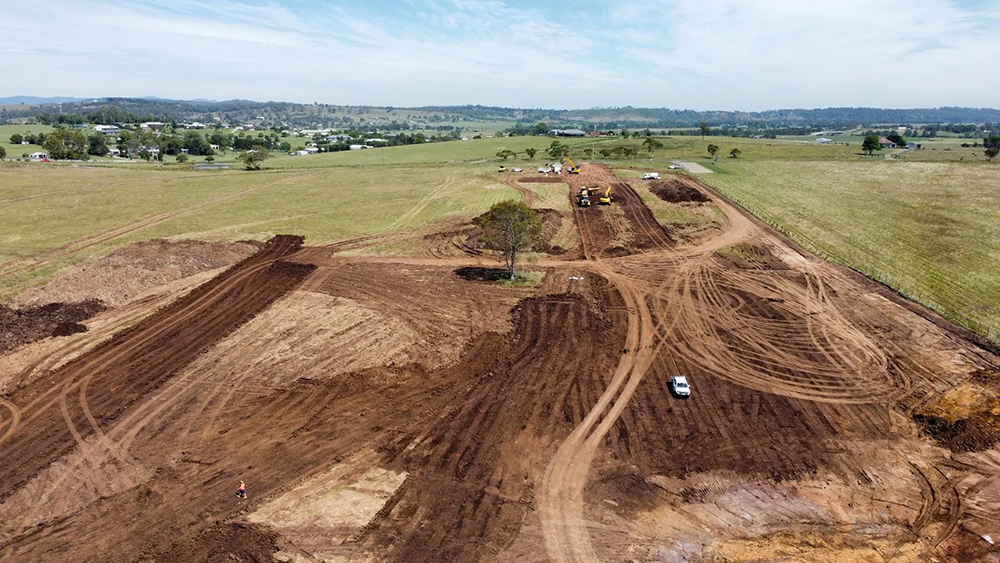How to Choose the Right Civil Contractor for Your Project
Whether you're managing an infrastructure upgrade, subdividing rural land or preparing a commercial site, understanding how to hire a civil construction company is critical to your project’s success. Civil works encompass a wide range of services—earthmoving, stormwater management, utilities, roadworks—and require expert coordination of heavy plant, regulatory compliance and strict safety protocols. That’s why hiring a contractor is about more than price—it’s about their ability to deliver safely, efficiently and in step with local Newcastle conditions.
To guide you through the process, here are eight essential factors to consider when hiring a civil construction company for your next project.
Assessing Experience with Similar Project Scopes
The first step is ensuring the contractor has completed projects that resemble yours. Experience with the specific type of work you need—be it residential subdivision, commercial foundation preparation, or infrastructure upgrades—demonstrates they know how to manage site risks, coordinate trades and meet compliance standards.
Look for:
- A project gallery showing jobs of similar scale and complexity.
- Familiarity with council and state-level engineering requirements.
- Testimonials from property developers, government clients or builders.
Choosing a civil contractor with a track record in your project type improves predictability and accountability.
Checking Qualifications, Licensing & Insurance
Reputable civil contractors in Newcastle must be fully licensed and insured to operate. Don’t take this at face value—ask for details. Licences confirm legal competency, while insurance protects your project against injury, damage or defect-related liabilities.
Key credentials to request include:
- Contractor’s licence with relevant classifications
- Public liability insurance
- Workers compensation coverage for all site staff
- WHS accreditation or compliance with Australian standards
Verifying these credentials ensures you're not exposed to unnecessary legal or financial risk.
Reviewing Their Commitment to Safety Practices
In civil construction, safety isn’t a checkbox—it’s embedded in daily operations. A good contractor will have systems in place that ensure every team member goes home safely and that work proceeds with minimal disruption.
Strong safety culture is shown through:
- Pre-start safety checks and documented risk assessments.
- Use of PPE, signage, and exclusion zones across all active sites.
- Induction protocols for staff and subcontractors.
- Transparent incident reporting and corrective action processes.
When a contractor prioritises safety, it reduces the likelihood of delays, fines, and site shutdowns.
Investigating Equipment & Technological Capabilities
Modern civil construction requires more than a fleet of machines—it demands tools and technologies that drive accuracy and efficiency. Ask whether their equipment is suited to your project’s needs and whether they’re investing in modern systems.
Look for:
- GPS‑guided machinery for precise excavation and grading.
- Equipment tracking for transparent progress and usage monitoring.
- Cloud-based project management platforms for real-time updates.
- Earthmoving plant that’s compliant with emissions and noise standards.
The right tech improves not just the speed of delivery but also the quality of work and your ability to track it.
Understanding Their Approach to Project Management
A contractor’s ability to keep your project on track comes down to how they manage scheduling, communication, and execution. A structured project management approach creates clarity and reduces disputes.
Clear Scheduling
A reliable contractor provides defined timelines and milestone tracking. This includes when each phase will start, how long it should take, and what dependencies are involved.
Transparent Communication
They’ll nominate a site supervisor or project manager as your direct contact. Expect regular updates—weekly reports or site meetings—to keep you informed.
Quality Assurance
Established contractors use internal QA systems that document inspections and defect rectifications before handover. This ensures standards are met every step of the way.
On-Site Supervision
Effective supervision ensures that subcontractors and machine operators are following the plan and site rules. It also supports quicker responses to emerging site conditions.
Considering Local Knowledge & Regional Familiarity
Working with a Newcastle-based civil contractor offers advantages that go beyond convenience. Local knowledge—of the soil, councils, suppliers and climate—can help prevent costly surprises.
Regional familiarity benefits your project by:
- Reducing lead times thanks to local plant and material suppliers.
- Speeding up DA approvals through council relationships.
- Accounting for soil conditions like reactive clay or sandy fill.
- Planning around seasonal rainfall patterns or stormwater demands.
Local contractors also tend to have subcontractor relationships that support smoother coordination.
Spotting Red Flags & Warning Signs Early
Not every contractor is up to standard. Being able to spot early warning signs can save you from mid-project conflict or financial loss.
Common red flags include:
- Vague or generic quotes without clear line items.
- Avoidance of references or reviews from past clients.
- Poor response times or inconsistent communication.
- Unrealistic timeframes that seem “too good to be true”.
- Over-promising on capabilities without equipment to match.
Trust is important—but so is evidence. A reliable contractor should be open, professional, and ready to explain how they work.
Comparing Quotes Beyond the Bottom Line
It’s easy to be drawn to the lowest quote when reviewing tenders, but civil works often involve hidden complexities that aren’t always visible at first glance. The cheapest option can lead to costly variations, delays or compromised workmanship if important elements are excluded or vague. A better approach is to compare each quote holistically—looking at not just the bottom line but what’s actually being delivered for that cost.
Here’s what you should review across each quote:
- Site preparation inclusions: Check whether services like site clearing, compaction or haulage are clearly itemised or assumed.
- Project timeframes: Ensure the quoted duration is realistic and supported by a clear delivery schedule—not just an optimistic estimate.
- Materials breakdown: Look for line-itemed allowances for gravel, concrete, drainage pipes or imported fill rather than a lump-sum figure.
- Equipment transparency: Reputable contractors will list machinery types and specs (e.g. GPS dozer, tipper, excavator) to confirm their operational capacity.
- Contingency planning: Quotes should include buffers for unexpected issues—whether that’s a fixed percentage or a flexible risk management allowance.
Partner with Our Trusted Civil Contractors in Newcastle
At JDM Civil Group, we support Newcastle developers, builders and property owners with reliable, licensed and locally informed civil construction services. Whether you’re planning a rural subdivision, or a commercial earthworks package, our civil contractors in Newcastle have the skills and systems to deliver.
Let’s talk about how we can help deliver your project on time, on scope and with safety and compliance at the forefront. Contact us today.







